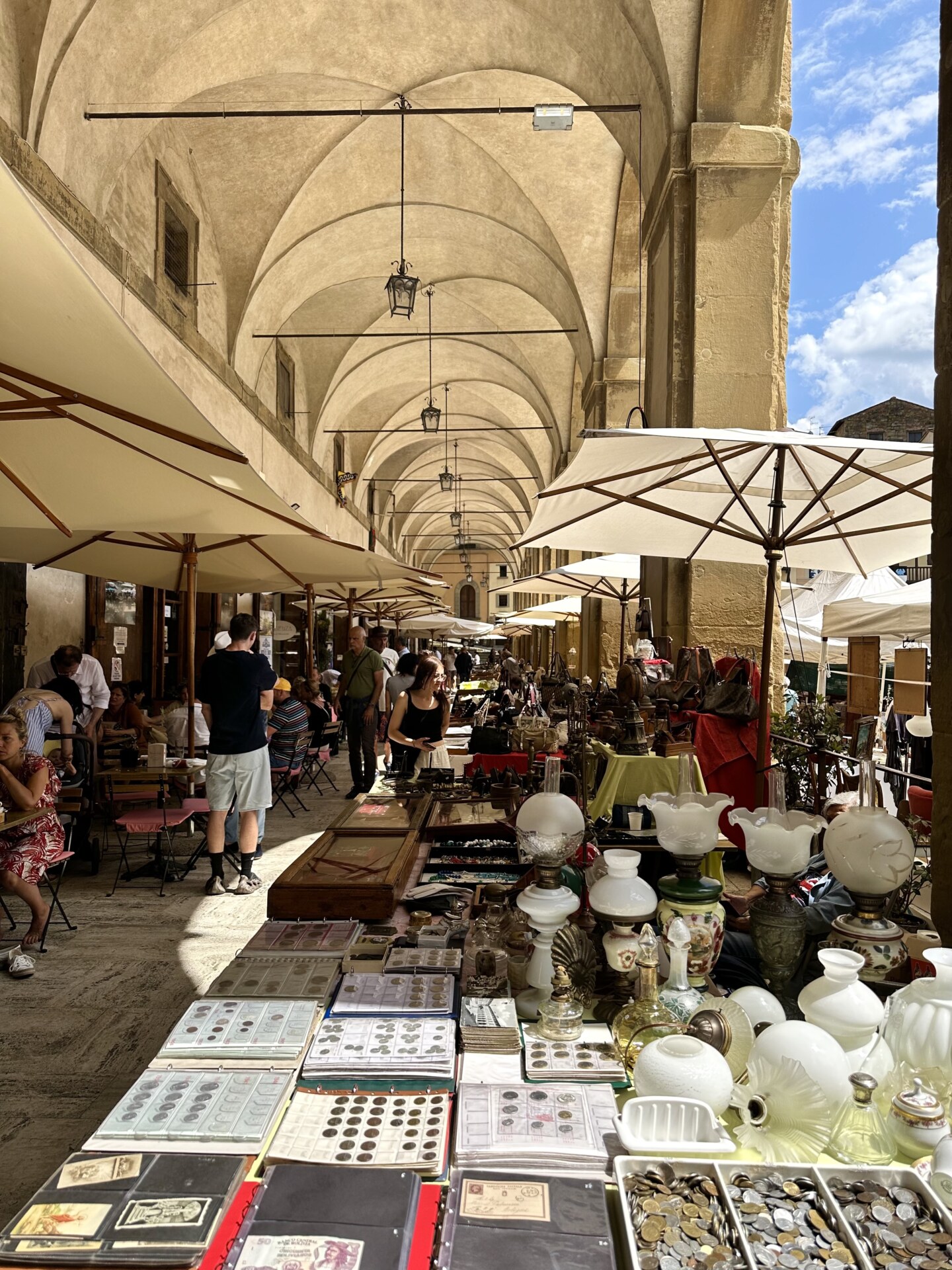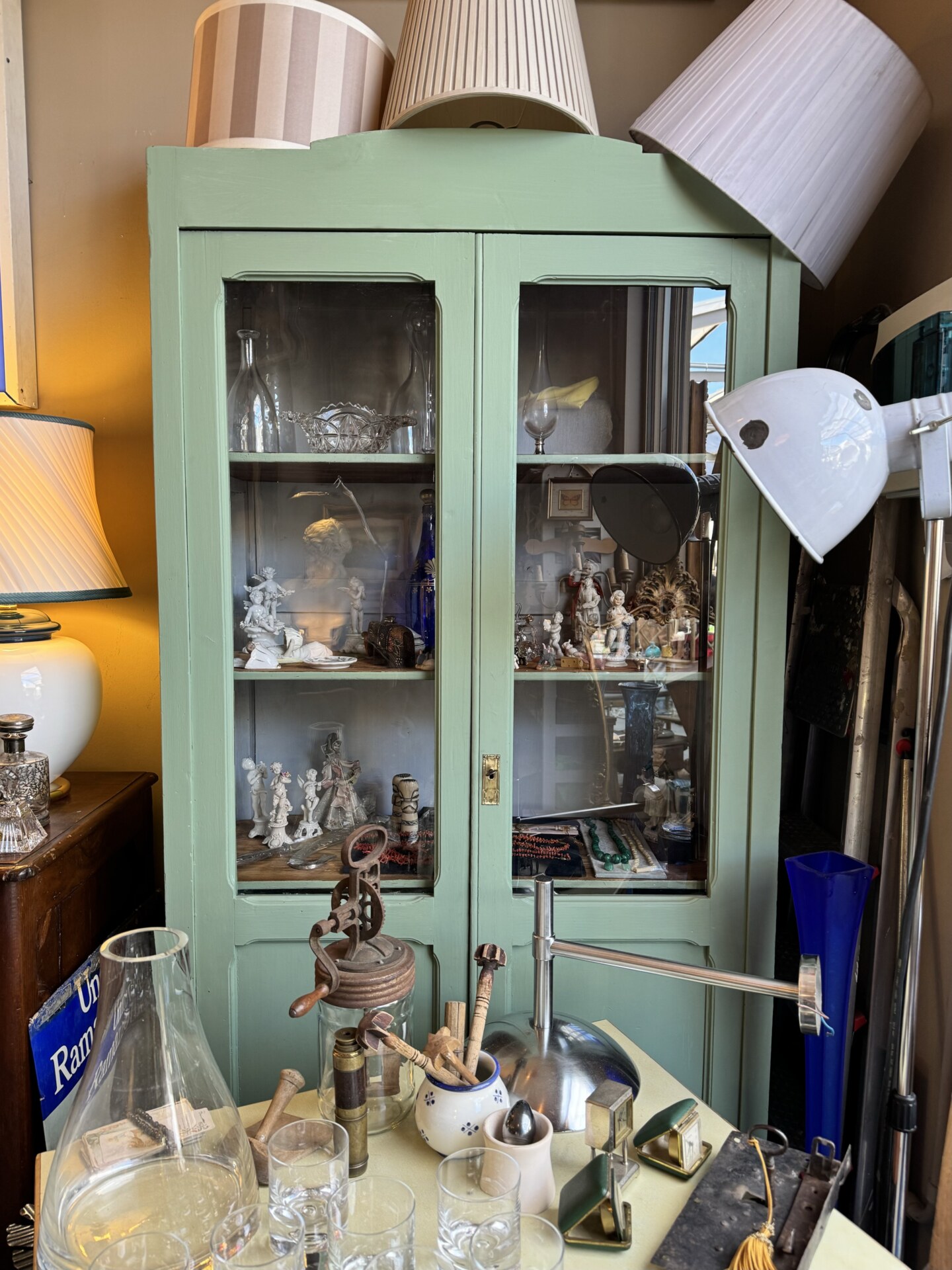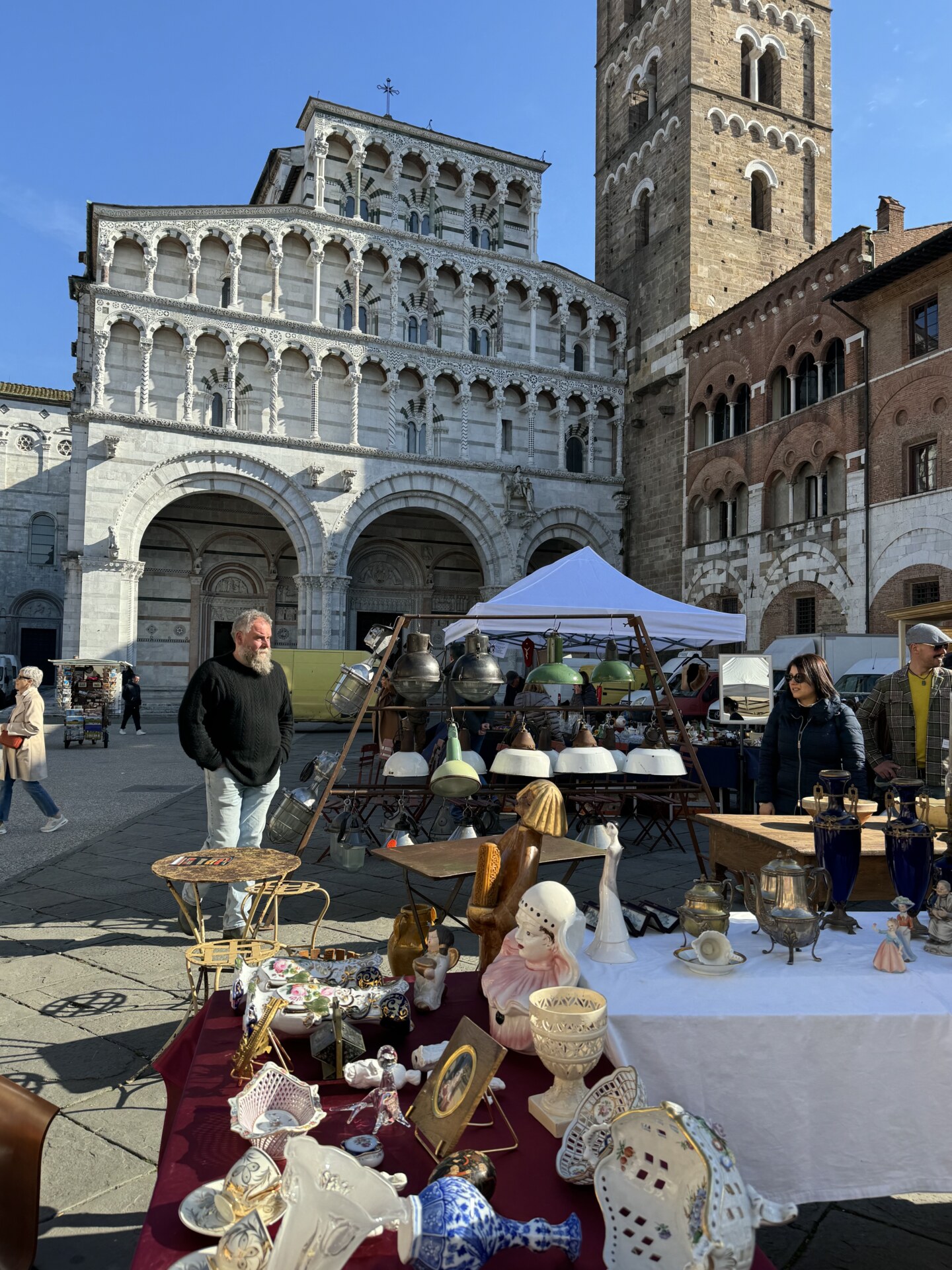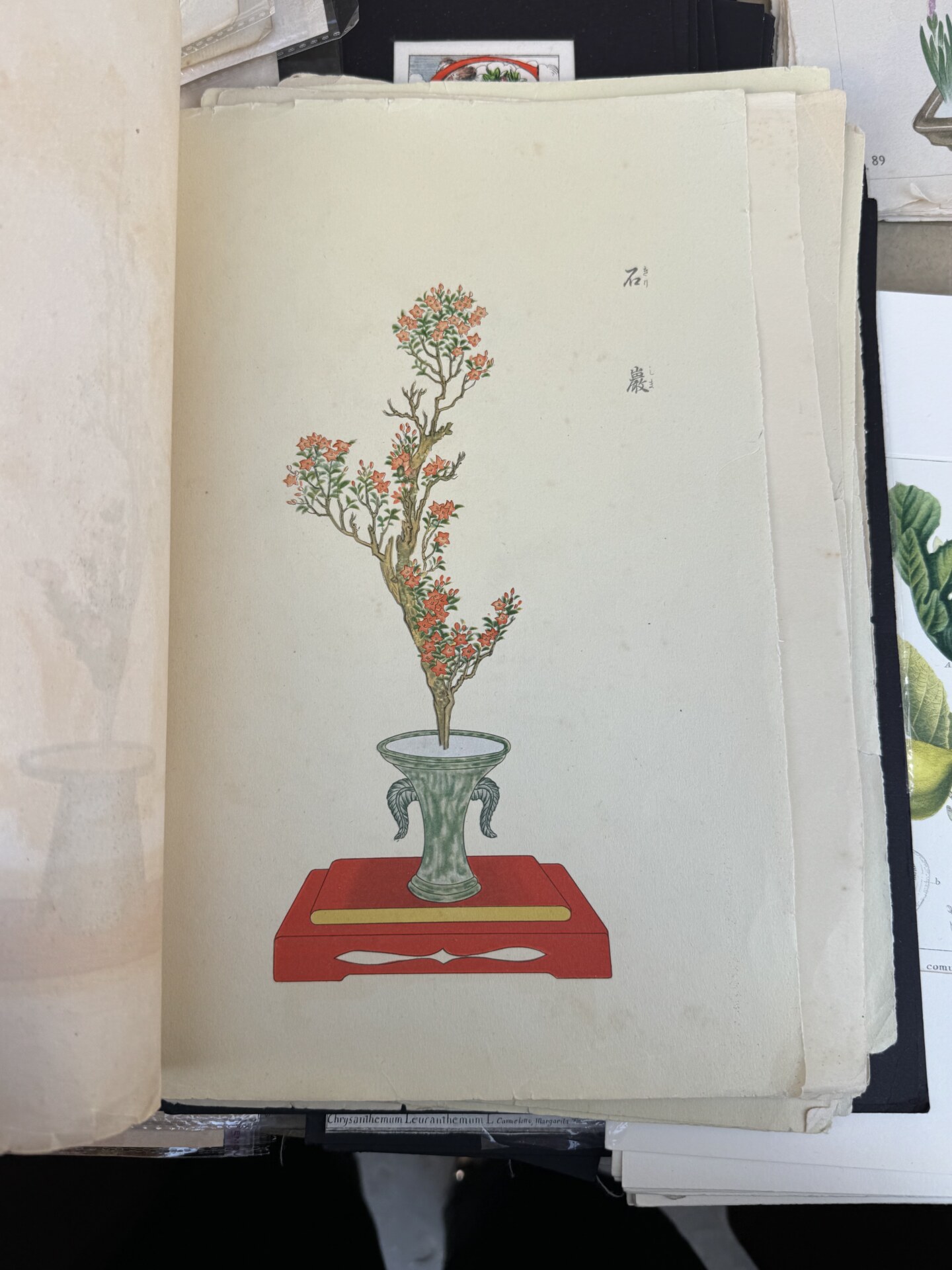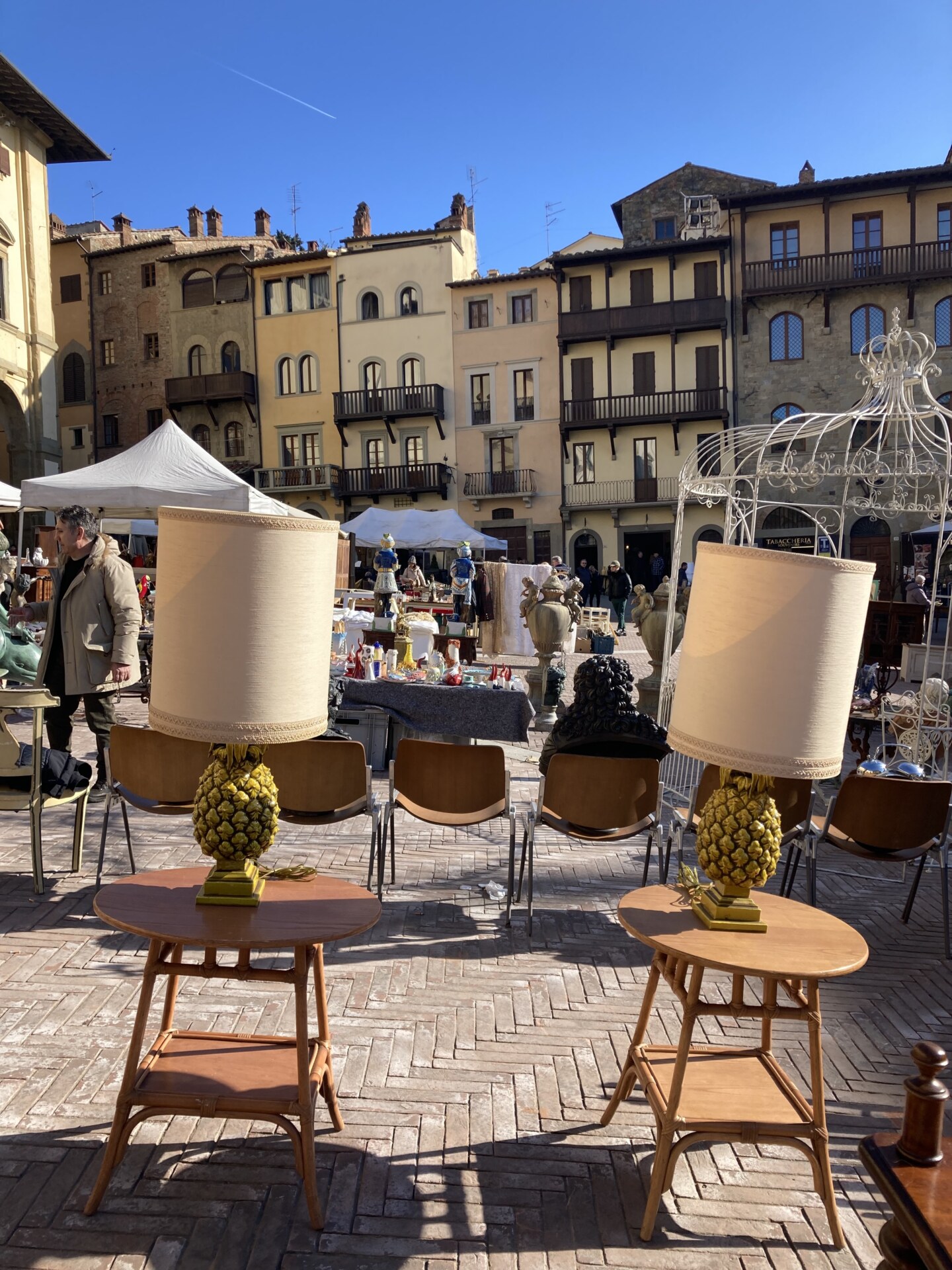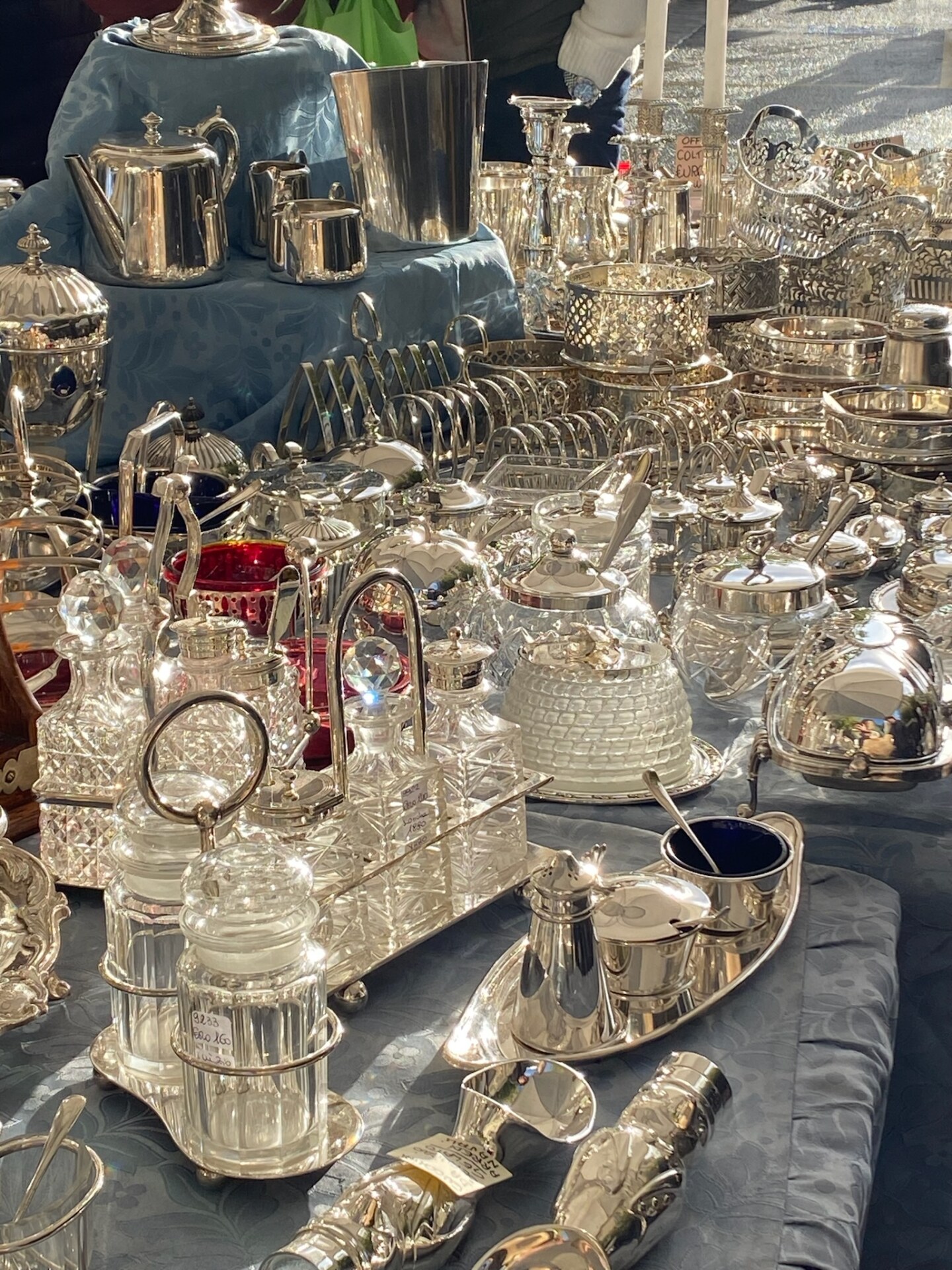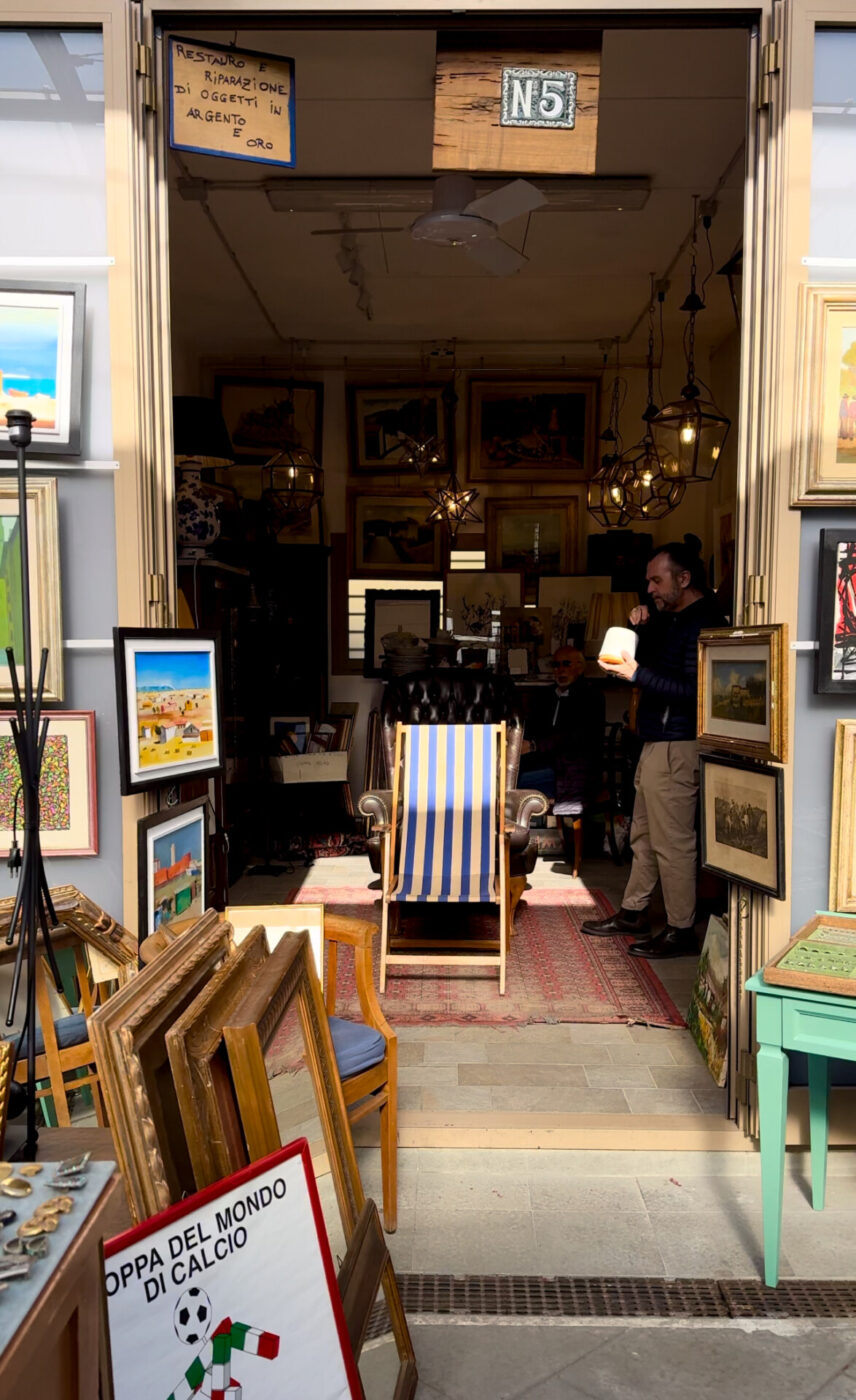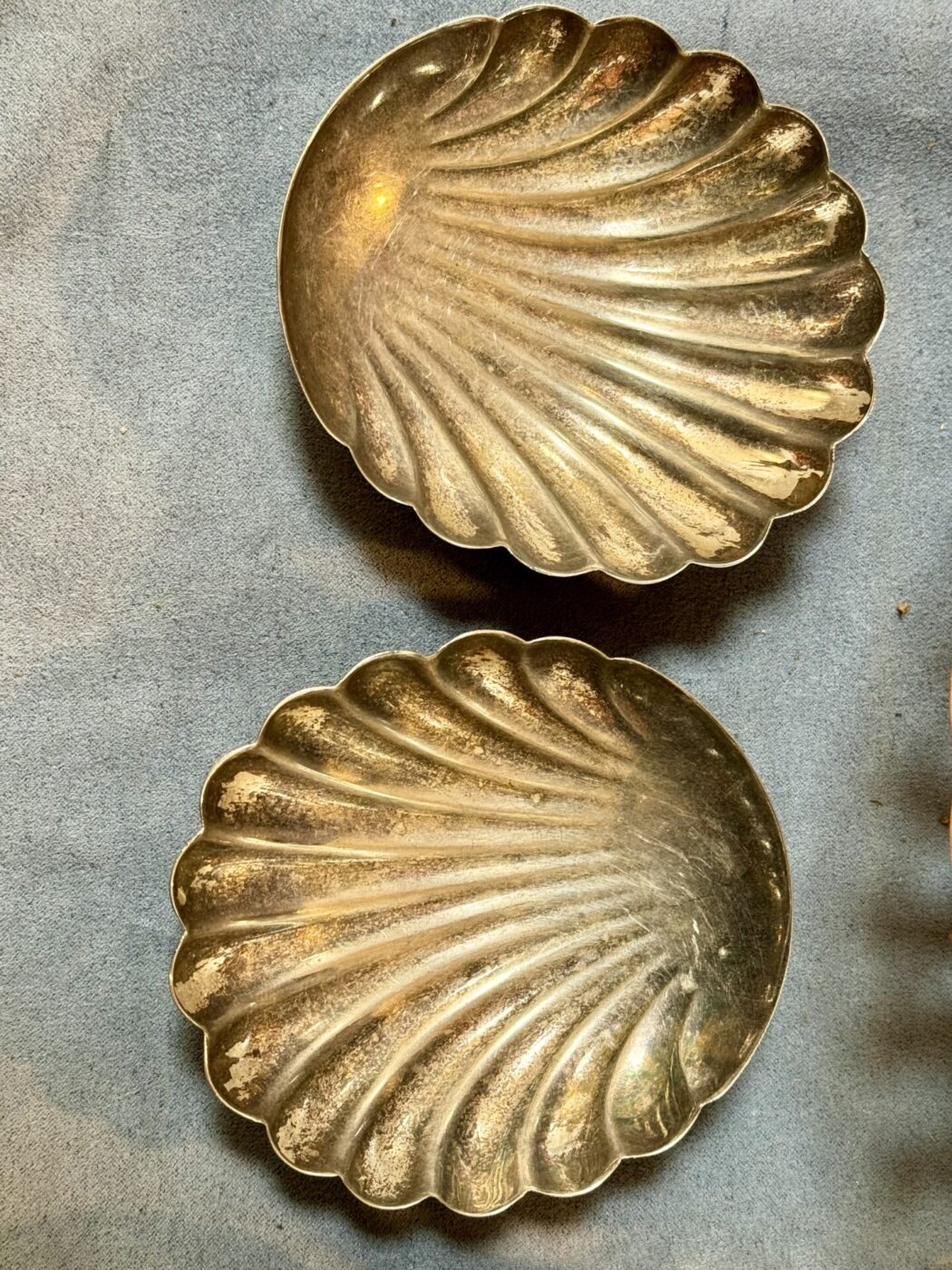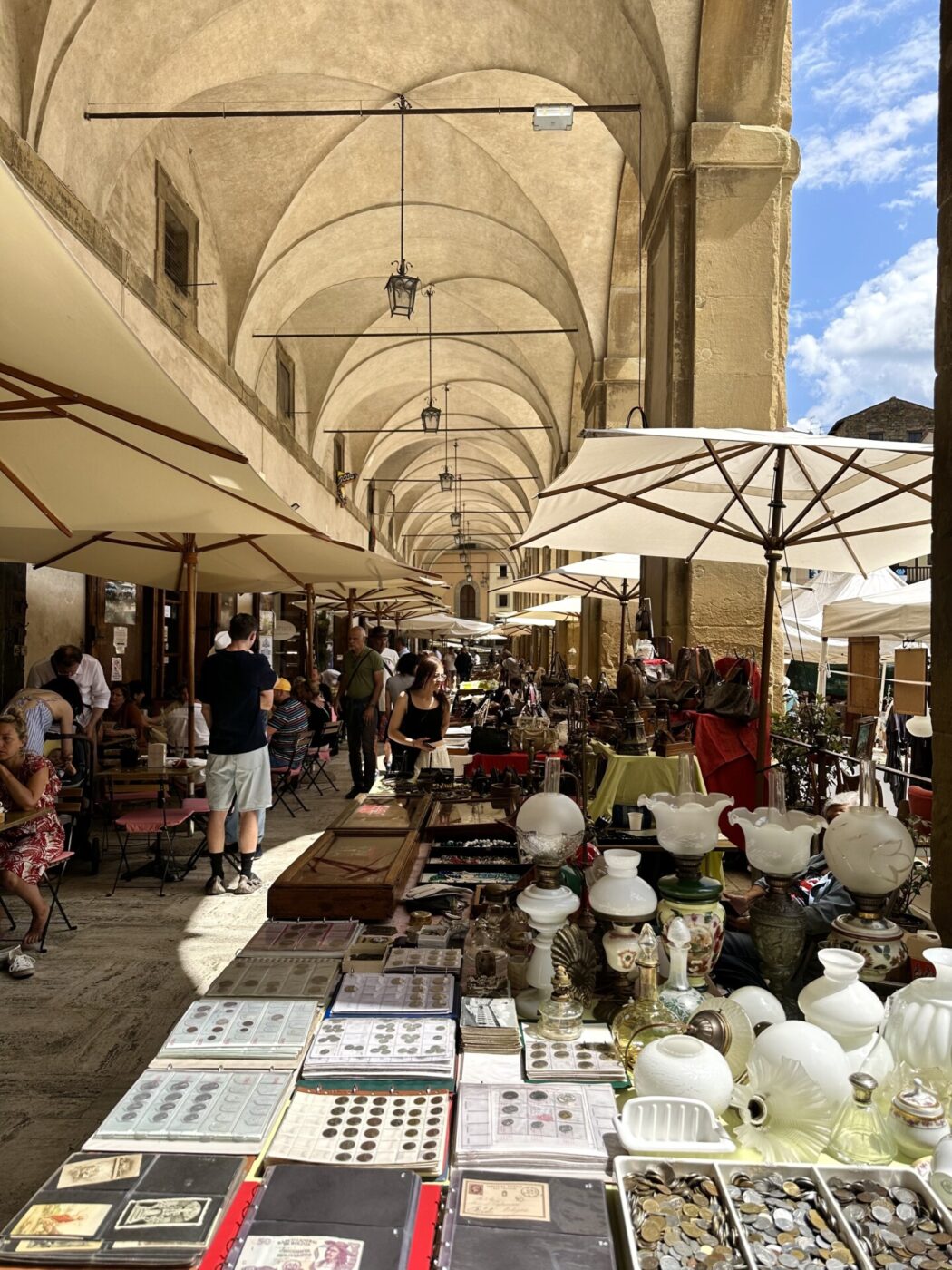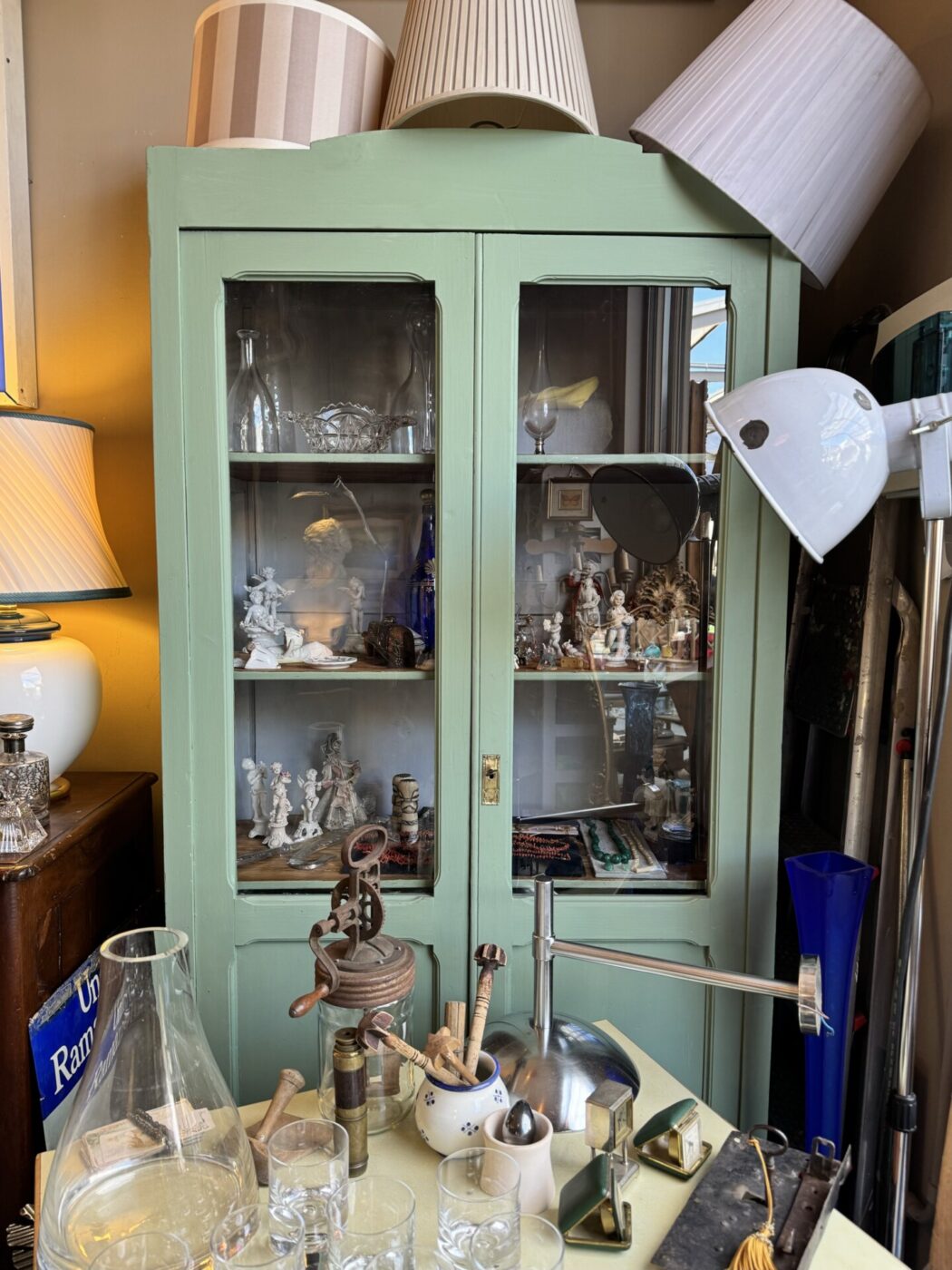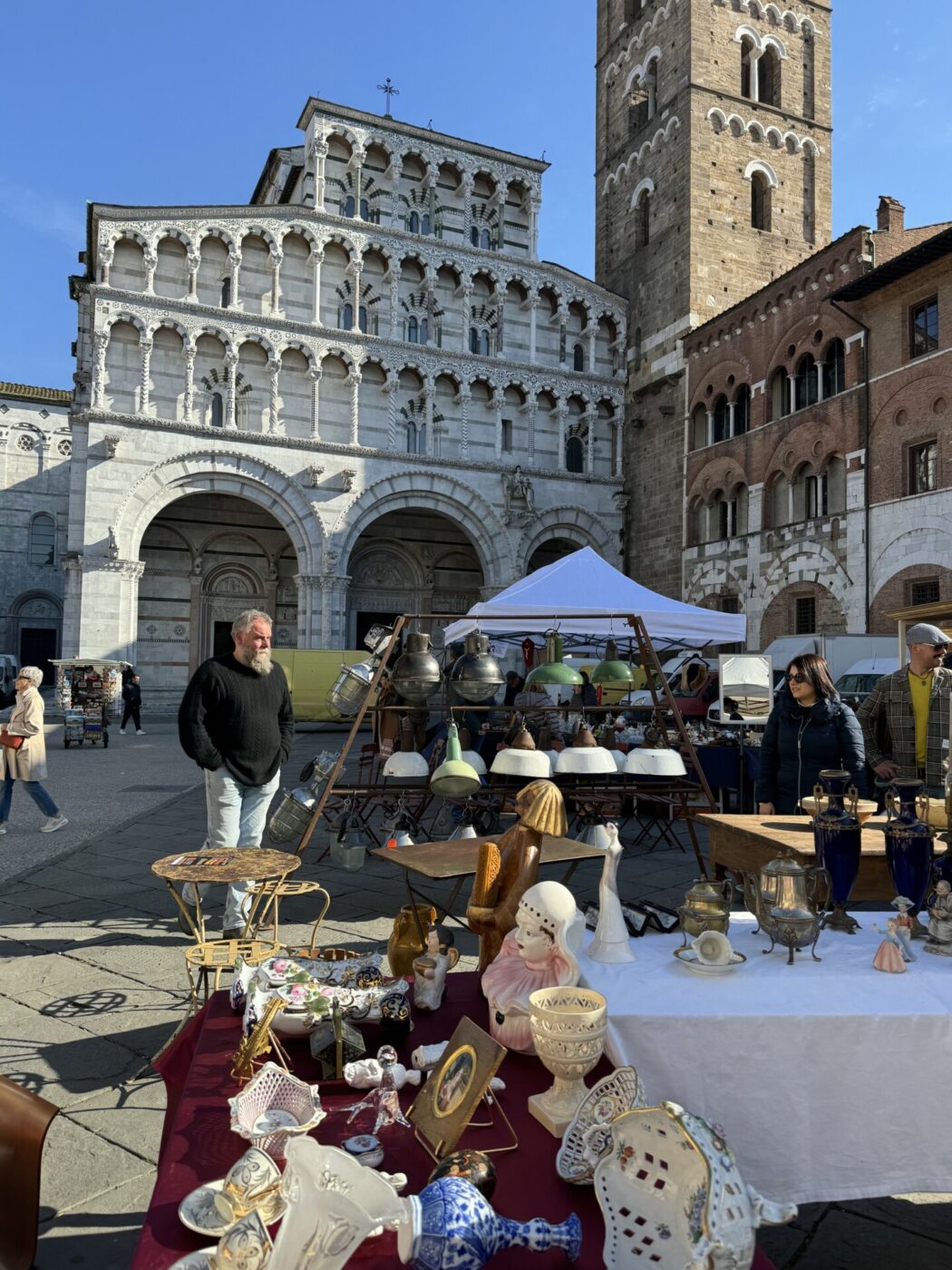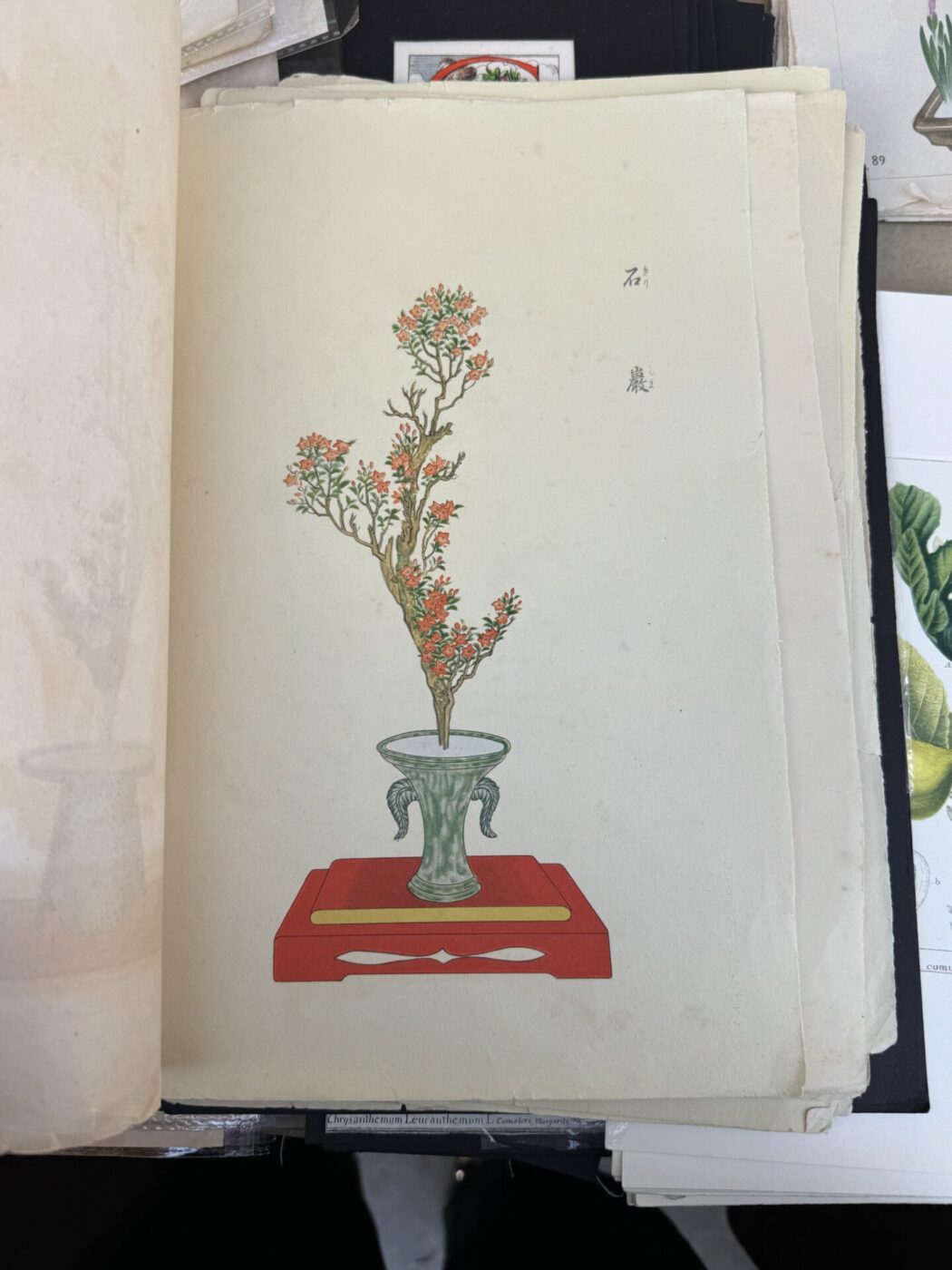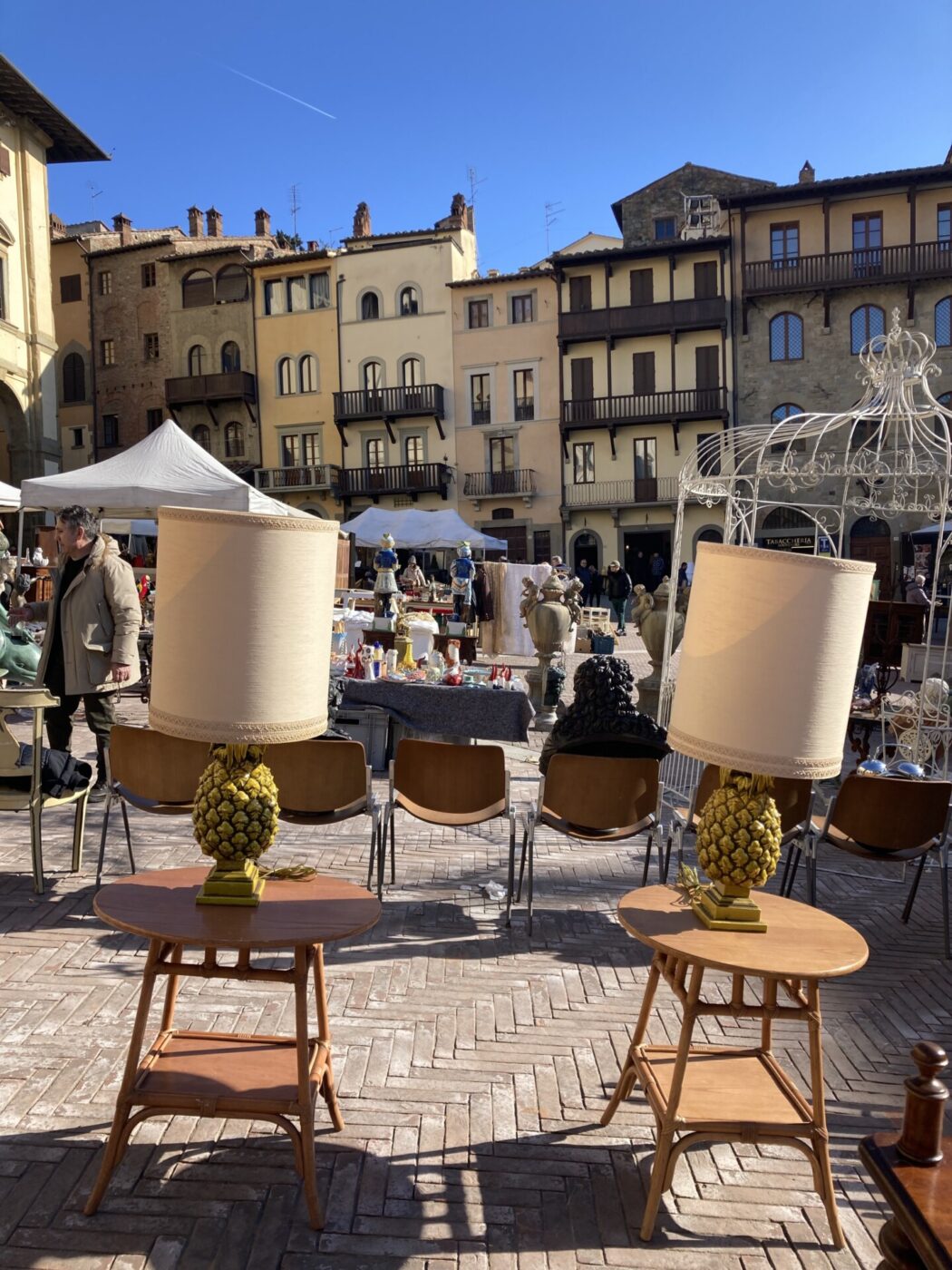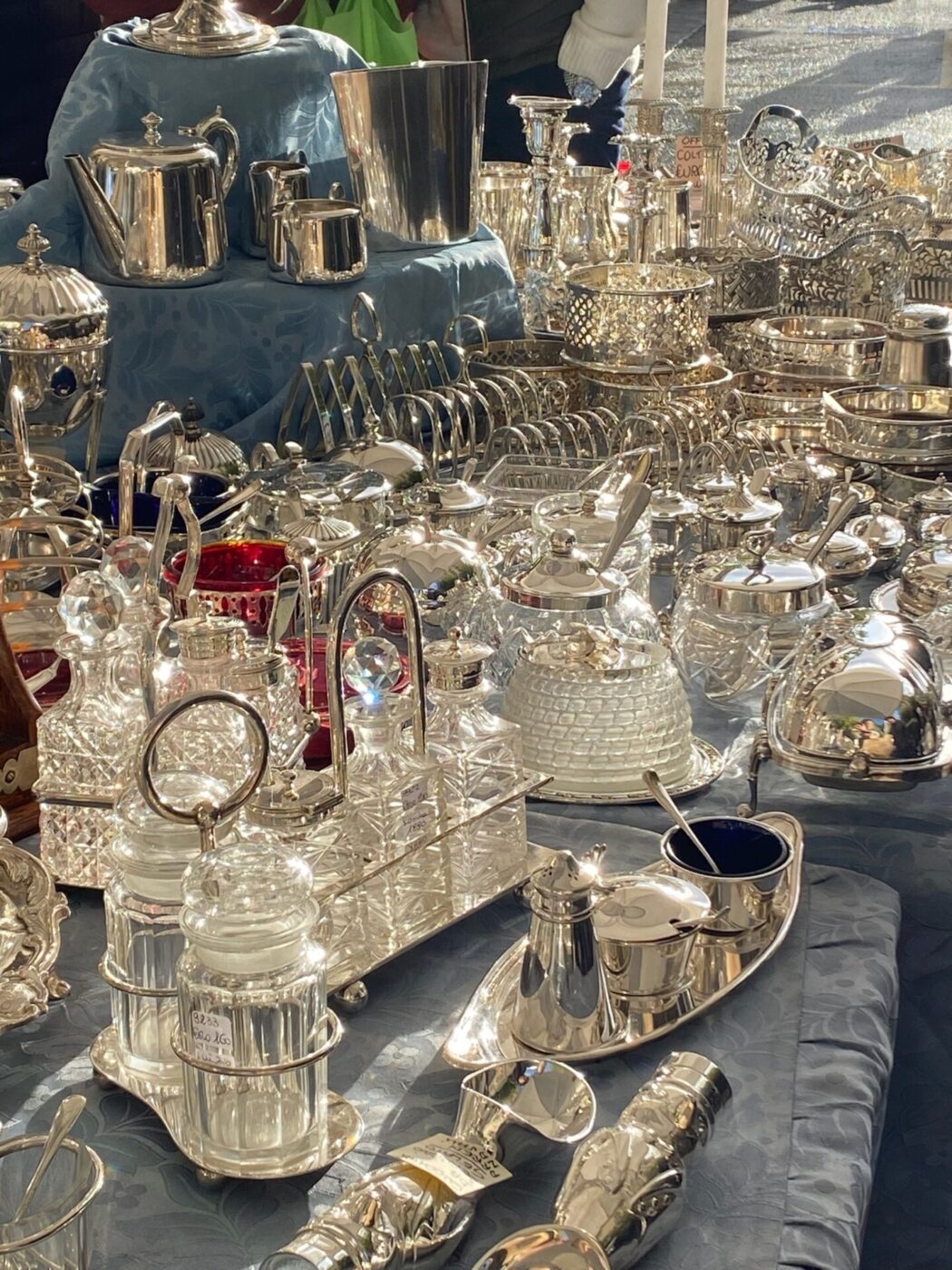As opposed to Puglian flea markets, where simple reigns supreme, or those in Milan, full of designer finds, the antique markets of Tuscany, true to the region’s character as Italy’s middleman, run the gamut. You’ll find humble objects from countryside farmhouses to ornate pieces from historic villas, but also murano glass from Venice, ceramics from the south, midcentury pieces from Milan, and even some exceptional international pieces like imported rugs from Iran and porcelain from China.
Every weekend throughout the region, these markets populate countless piazzas, neighborhoods, and even entire towns. Linens hang and sway in the breeze, silver candlesticks glisten in the sun, and soulful stacks of framed oil paintings wait to be sifted through. As a designer in the region, I can confirm: it is paradise, and there’s simply no better way to explore the layered history of Tuscan antiques than at a weekend flea market.
After years of observing the mechanisms of these fascinating exhibitions of Italian design and culture, I have uncovered only one, important, unspoken rule in the marketplaces: to wander, as aimlessly, as joyfully, and as slowly as possible.
Below, a list of the best weekend markets throughout the region, though, as with most things in Italy, schedules are subject to change. For the most up-to-date markets on any upcoming weekend, this site (in Italian only, I’m afraid!) is handy.
THE SUNDAY MARKET SCHEDULE
1st Sunday (and the preceding Saturday) of the month:
Arezzo
400 stands
The Arezzo market, the first weekend of every month and the biggest in the region, is the one not to miss. The eastern Tuscan town transforms into one massive exposition with side streets, main streets, central piazzas, and courtyards full of vendors boasting everything from high design and upscale antiques to bizarre trinkets. Arezzo is especially famous for its silver, and you can find exceptional jewelry and tableware at great prices. Take the whole day and save some time to sneak into the brick-and-mortar antique and interior shops (I particularly enjoy Antichita Luca Raspini) in town along the way; Arezzo has tons of them! Stands start within a five-minute walk from the train station. From there, walk along Via Guido Monaco and slowly make your way towards Piazza Grande. For sustenance, grab a coffee and a treat from Caffe Pasticceria Stefano midway.
1st Sunday of the month:
Piazza Cavour, Livorno
70 stands
This smaller local market is a good excuse to visit the seaside town where you can have Italy’s best cinque e cinque.
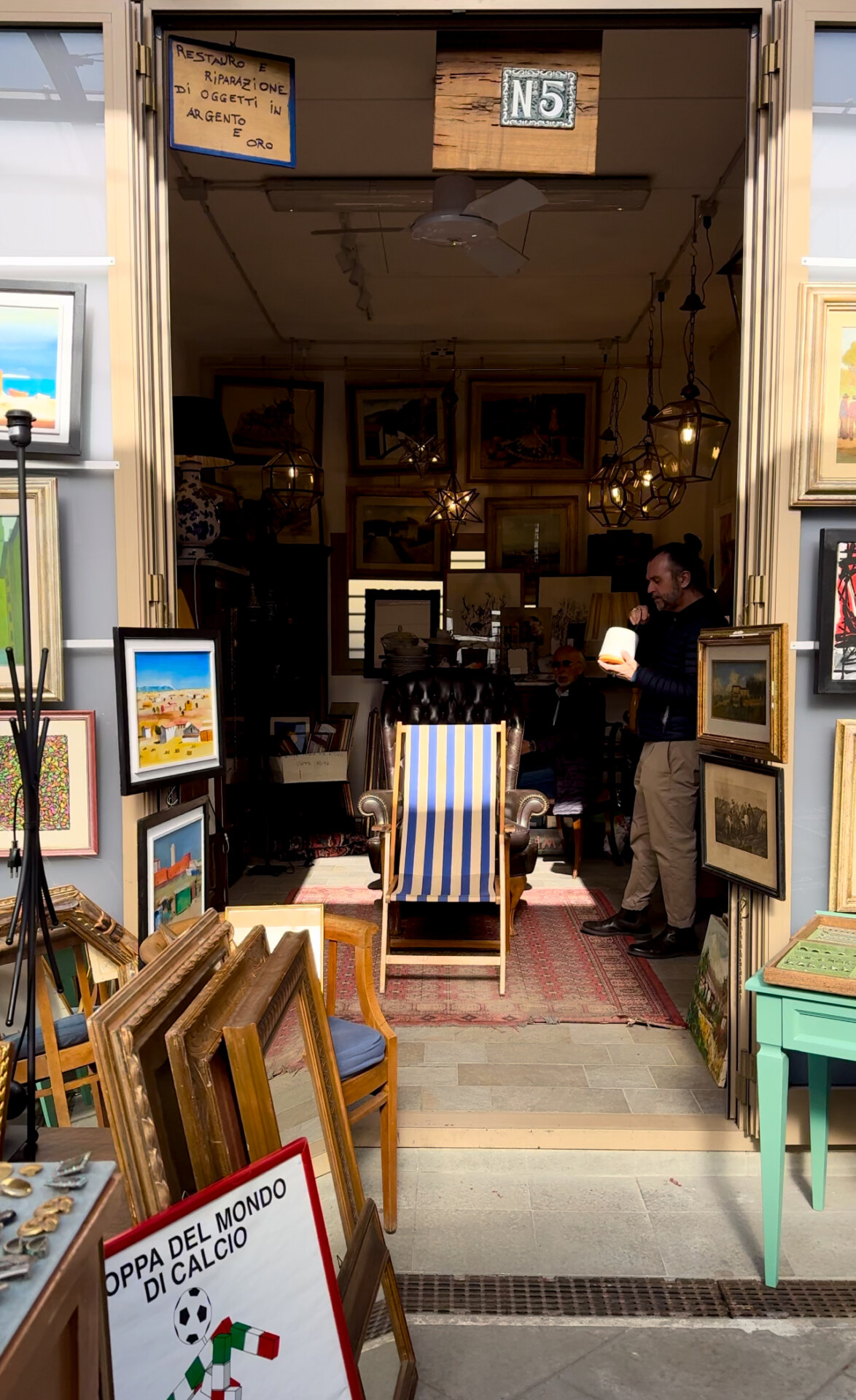
2nd Sunday of the month:
Santo Spirito, Florence
100 stands
A local favorite, Santo Spirito is one of the most charming neighborhood piazzas in Florence (though I may be partial; I live here). There are great pieces, but the market isn’t massive; I suggest a lap in the morning after a coffee and pastry from S.forno down the street, or an afternoon visit and a laid back glass of wine and crostino from Il Santino as you recount your favorite finds from the day.
Pro Tip: Expand your treasure hunting into the surrounding neighborhood; Via Serragli, Via Maggio, and Via Santo Spirito are known for great interior and antique finds. I particularly love Luca Workshop, Paoletti Paolo, and Expertise di Marzio Cinelli, all close to the piazza.
2nd Sunday (and preceding Saturday) of the month:
Forte dei Marmi
60 stands
A lovely market in the charming and glitzy town nestled between mountains and coast. Forte dei Marmi is famous as the “fortress of marble” with its surrounding quarries being rumored to hold Michelangelo’s carrara marble, and as a glamorous Tuscan beach break.
Pro Tip: if you’re there on a Saturday, hit Recuperando for recovered marble sinks and an endless selection of special hand-painted tiles (it’s closed Sundays).
3rd Sunday (and preceding Saturday) of the month:
Lucca
220 stands
Find the second largest weekend market in Tuscany in Lucca, where several of the city’s quintessential church-front piazzas fill with stands and make for a perfect tour of the city. Carbo-load for a long day of shopping with a pastry from Pasticceria Pinelli or Buccellato Taddeucci. The market is a five-minute walk from the train station; exit the station, enter the city’s famous fortress walls, and walk towards Piazza Antelminelli to start.
Piazza dell’indipendenza, Florence
100 stands
In a sprawling park near Florence’s primary train station, Santa Maria Novella, Piazza dell’Indipendenza’s market can take up a good half-day of deal seeking. Grab a Lebanese wrap for lunch at Lo Saj, one of the best non-Italian spots in Florence.
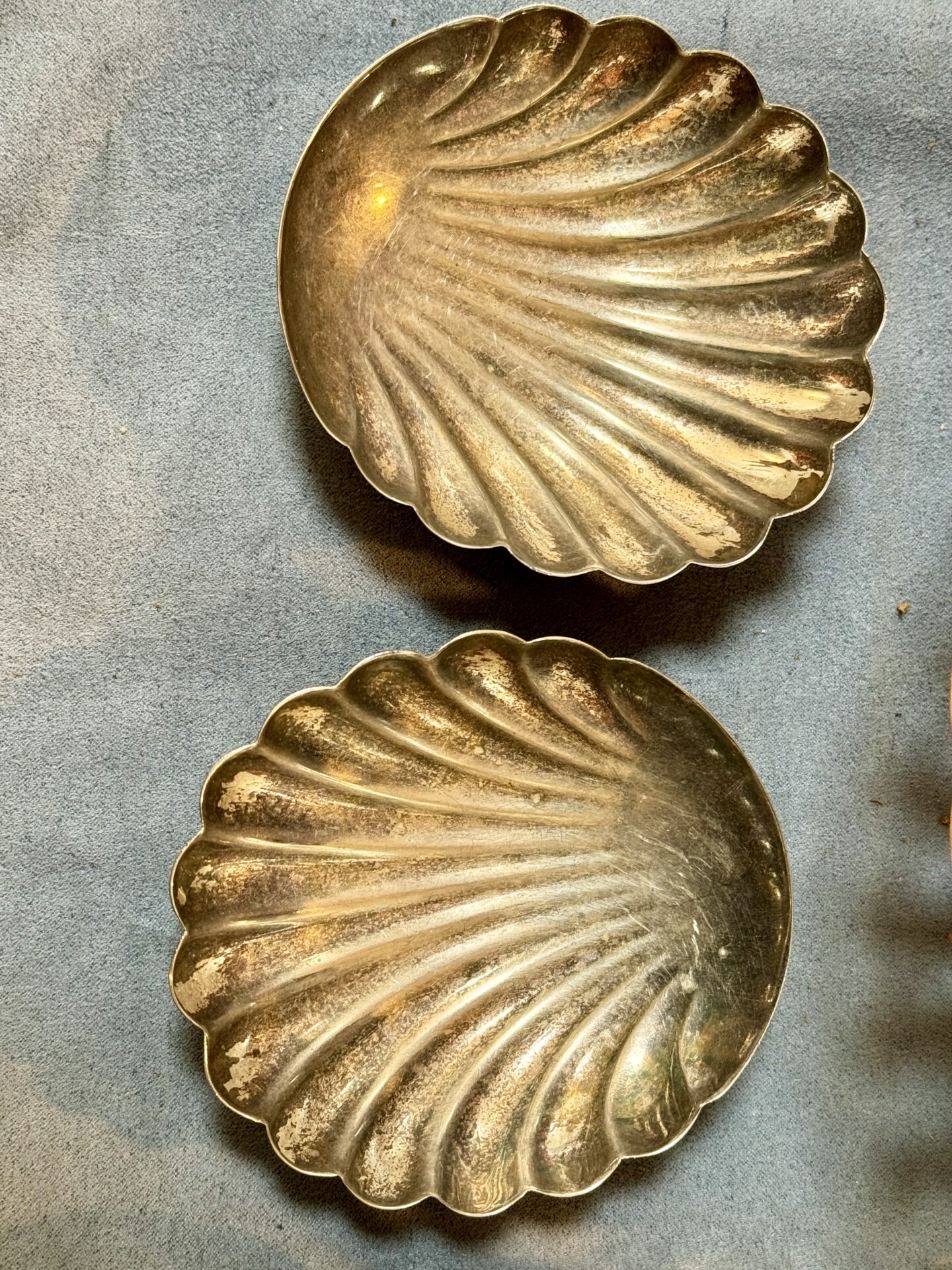
3rd Sunday of the month:
Piazza del Mercato, Siena
90 stands
In the gilded town famed for its horse race, stroll through this market with a bit of everything, especially albums and vintage books.
4th Sunday of the month:
La Piazza Stefano de Maria, Grosseto
60 stands
Take a spin through this compact market, before checking out this coastal corner of Tuscany with a trip to the beach or a caper through the Natural Park of Maremma.
Piazza delle Erbe, San Gimignano
50 stands
This famed, picturesque Tuscan town holds a small antique market once a month in a central piazza.
Last Sunday of the month:
Sant’Ambrogio, Florence
70 stands
Sant’Ambrogio is a famed daily food and farmers’ market which expands the last weekend of the month into antiques and vintage. Don’t skip the fixed stands at Mercato dei Pulci (open daily) alongside the open air market. (You certainly won’t go hungry in this local-favorite neighborhood either; I can’t think of a better place for a Sunday lunch than Cibrèo Caffè.)
Biannual (the next edition will be March 9th & 10th, 2024):
Mercato delle Pulci, Arezzo
200 open air vendors and 600 indoor vendors, accessible with an entry fee of 3 euros
This upcoming biannual market boasts up to 600 stands of personal pieces and donated items, with an endless selection of clothing and household trinkets. If you love the thrill of the search and great prices, this is the market for you!
